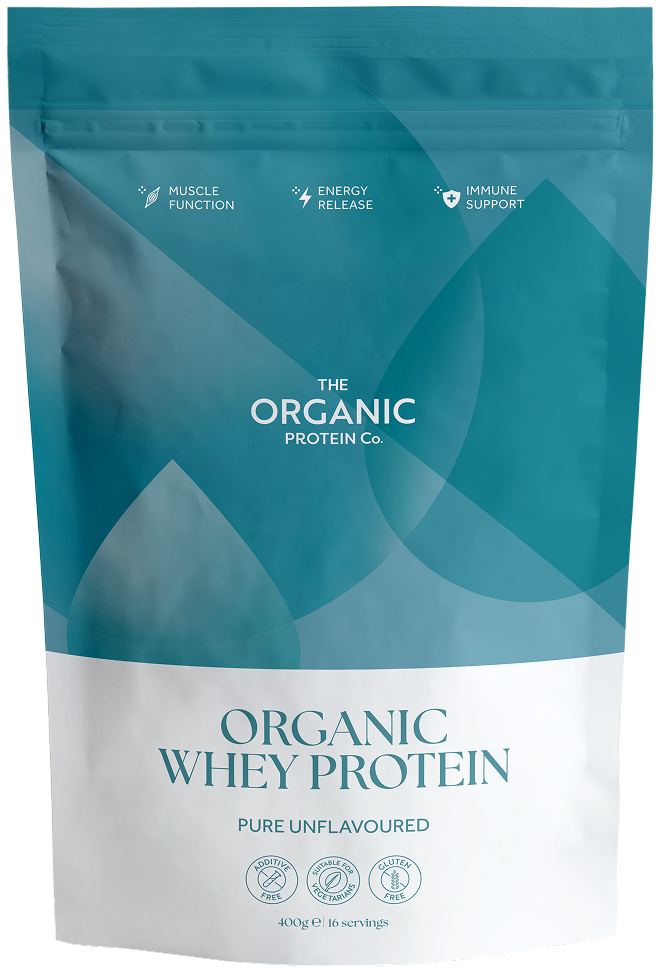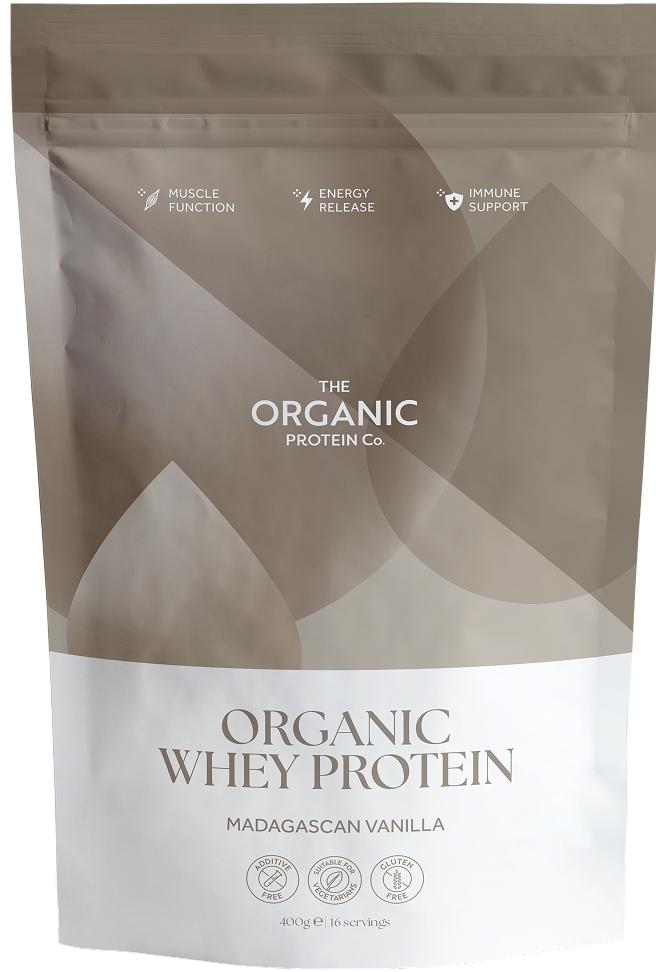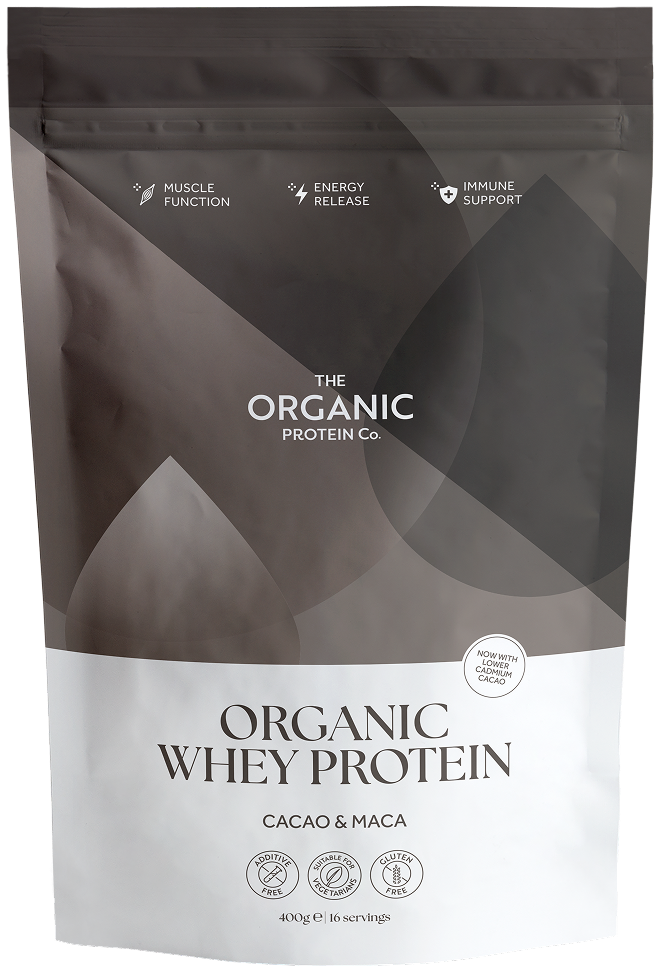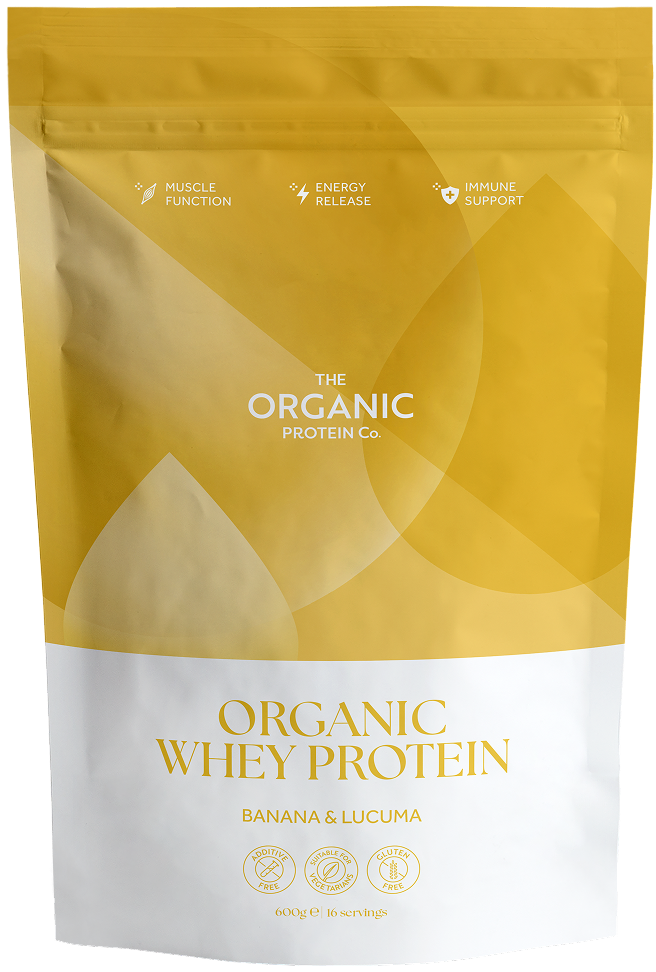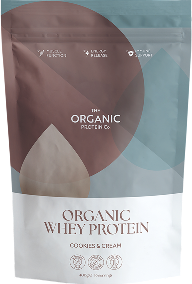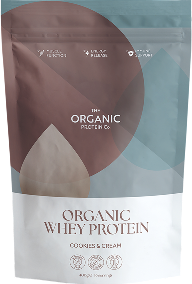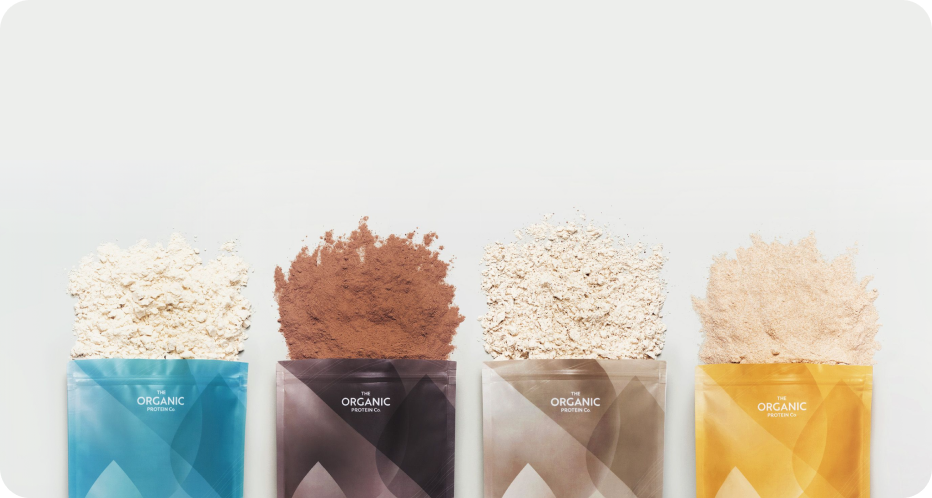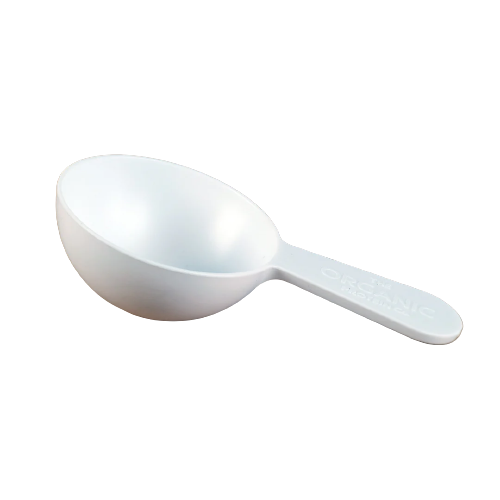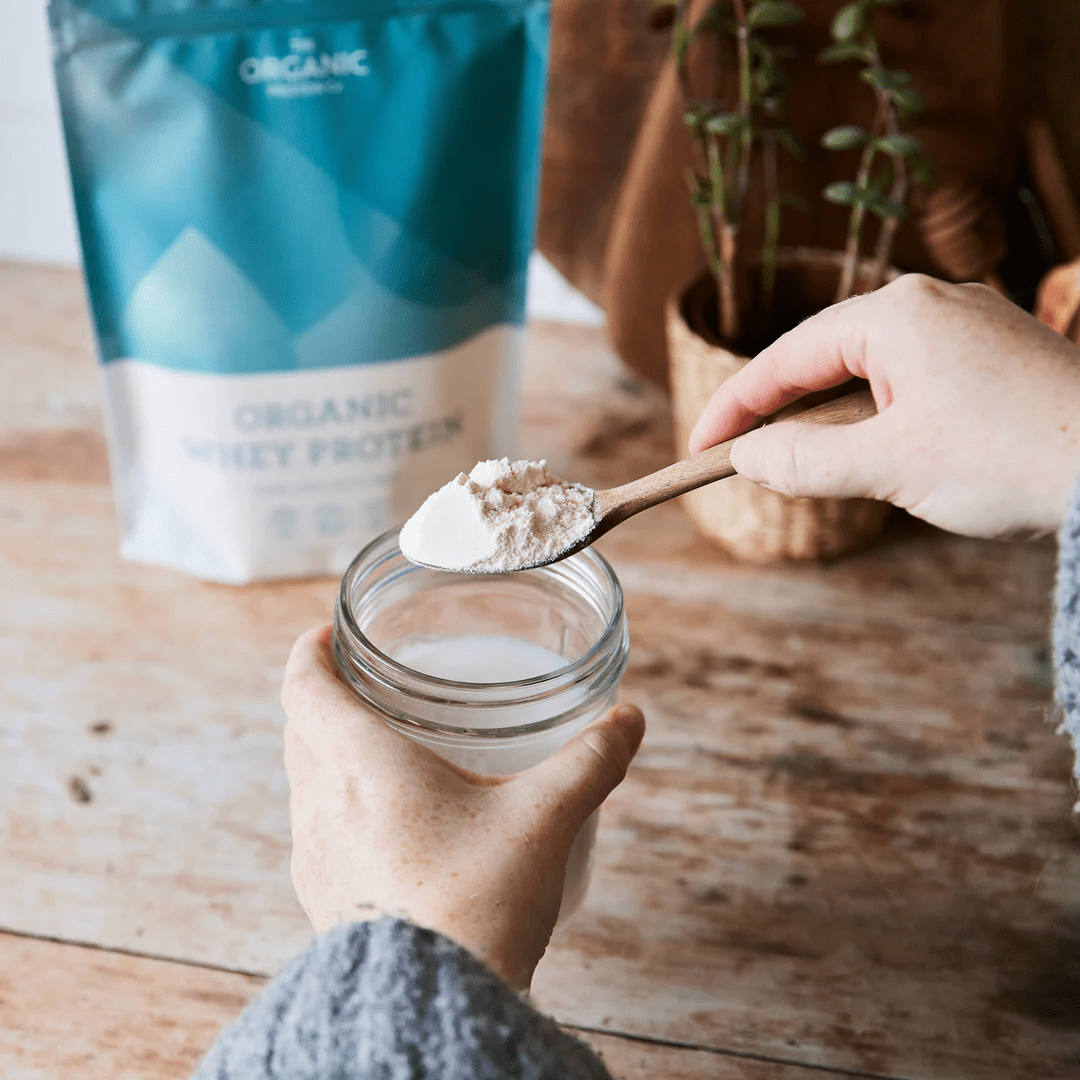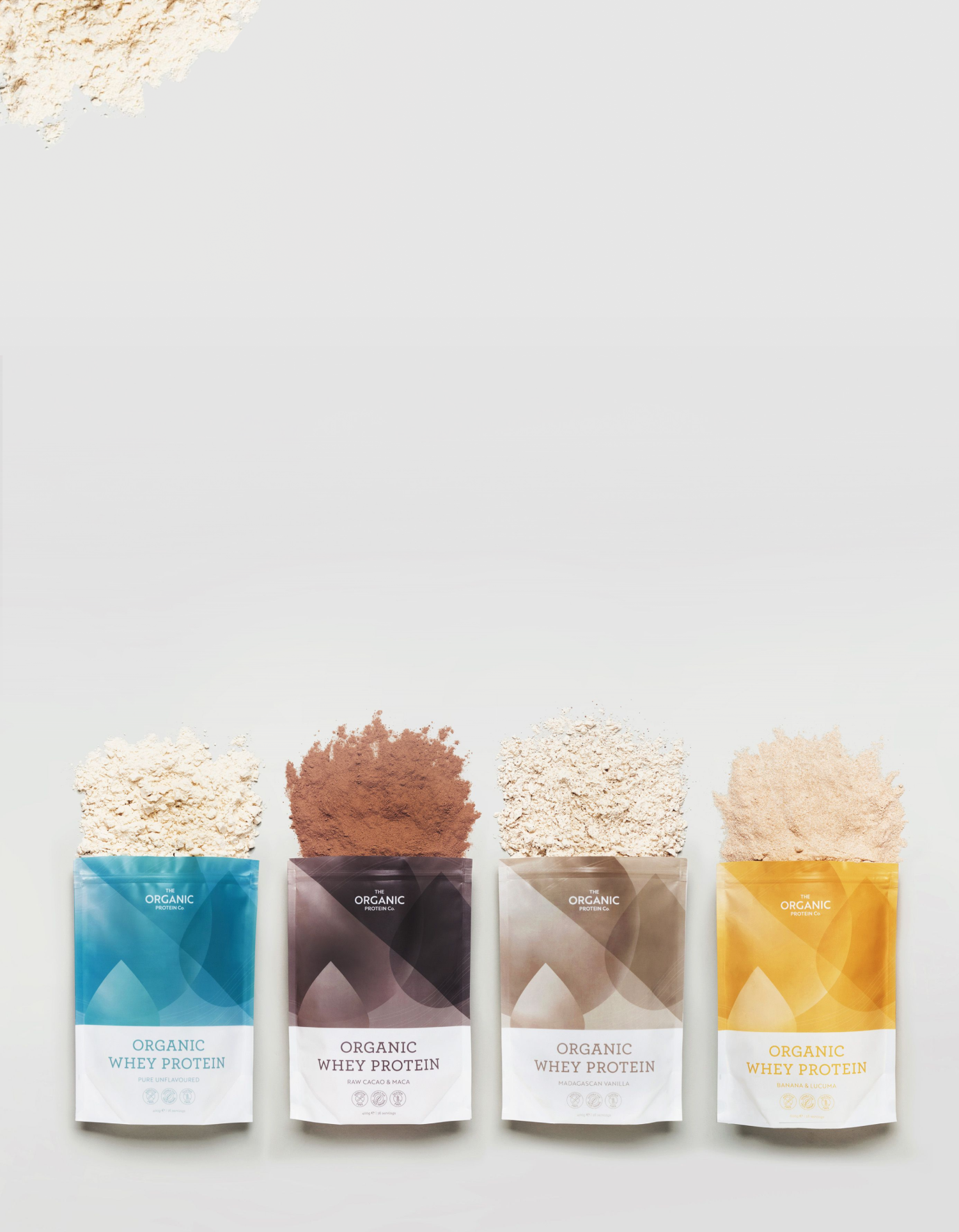Ultra-processed foods may seem like a recent buzzword, but the conversation around them has been building since the 1970s and 80s (1). At The Organic Protein Co., we're committed to transparency and quality, which is why we want to inform our customers about how our organic whey protein powders rise above common UPF concerns.
By using gentle filtration methods, without the use of chemicals or additives, and 100% organic, whole food ingredients, our products support optimal nutritional intake while steering clear of the ultra-processed ingredients used in many other chemically extracted protein powders. This dedication to natural, clean nutrition helps make ours some of the best protein powders available today.
What are ultra-processed foods?
You might have come across the term ‘ultra-processed’ or ‘UPF’ before - maybe only in recent months, as it’s hit the news more frequently, or maybe the topic has been on your radar for years. But what exactly does it mean?
Plenty of scientists, doctors, and dietitians have contributed to our understanding of this. The United Nations now uses the NOVA classification system (2), which was proposed by researchers at the University of São Paulo, Brazil in 2009. This system classifies food into four categories:

Unprocessed or minimally processed foods
- Natural foods which are the edible parts of plants or from animals. This includes fungi, algae, and water.
- Foods in this category have their inedible parts removed and are altered by processes such as drying, crushing, grinding, powdering, fractioning, filtering, roasting, boiling, non-alcoholic fermentation, pasteurisation, chilling, freezing, placing in containers, and vacuum packaging.
- Examples include: fruit, eggs, and milk.
Processed culinary ingredients
- Foods in this category come from group 1 sources or otherwise from nature through methods such as pressing, refining, grinding, milling, and drying.
- They aren’t typically consumed by themselves.
- Our cold-filtered, organic whey protein powders fit into this category. They're a natural by-product of cheese-making and undergo gentle filtration and drying, all without the use of any additives.
- Examples include: oils, sugar, salt, our organic whey protein powder, hemp protein powder.
Processed foods
- Foods in this category are made by adding substances from group 2 to group 1 foods.
- Processes include preservation, and cooking methods include non-alcoholic fermentation or canning and bottling.
- Examples include: canned or bottled vegetables or legumes (pulses) preserved in brine, some types of processed animal foods like ham or smoked fish, and most freshly baked bread and simple cheeses.
Ultra-processed foods
- Defined as “formulations of ingredients, mostly of exclusive industrial use, typically created by series of industrial techniques and processes”.
- These foods may have colours, flavours, emulsifiers, and other artificial additives added to make the final product “hyper-palatable” - that is, appealing to our taste buds in ways that aren’t found in nature.
- Pea, rice, soy, and faba are all examples of protein powders which would fit into this group, due to the manner in which they are processed.
- Examples include: carbonated soft drinks, sweets, cakes, sweetened breakfast ‘cereals’, and highly processed protein powders.
The above descriptions are summaries of each category. For a more detailed description, we’d encourage you to take a closer look at the full categorisation used by the FAO (the Food and Agriculture Organization of the United Nations).
With an inclination towards speed and convenience in modern life, studies have found that ultra-processed foods now account for 57% of the average UK diet (3).

Ultra-processed foods in the media
As well as academic papers and government documentation that have highlighted links between ultra-processed foods and adverse health outcomes (4), there’s growing discussion of concerns surrounding ultra-processed foods in the media.
Dr. Chris Van Tulleken’s recent book Ultra-Processed People, for example, weighs in on the subject and became Science Book of the Year 2023 for The Times and Sunday Times. He was also featured on the podcast “Feel Better, Live More” with Dr. Rangan Chatterjee, the #1 health podcast in the UK (5).
These perspectives aren’t unchallenged by any stretch of the imagination and it’s helpful to take a balanced view of the subject - such as the call for more research and the avoidance of “unnecessary anxiety” around the subject from Professor Eric Robinson at the University of Liverpool (6).
All this to say, there are signs that it’s becoming more important than ever for us to understand where our food is coming from and how it's impacting our health, fitness and longevity. So, where does our whey protein powder, and protein powder in general, fit into the conversation?
Is protein powder a UPF?
The journey of turning raw ingredients into protein powders is complex and varied. Not only does the sheer number of types on offer make it tricky to settle on the best protein powder for your goals, but the methods behind their processing can, at times, mystify. In some cases, they’re entirely hidden from you as a customer.
Commonly, proteins are extracted through chemical or enzymatic processes - such as hydrolysis, ion exchange, or alkaline extraction - or through purely mechanical means such as ultrafiltration or microfiltration (7). The quality and integrity of the proteins can differ vastly depending on the methods used. There are also different forms of protein powders - typically concentrates, isolates, and hydrolysates - each of which involves an increasing number of processes, respectively, to extract higher protein content.
Soy, pea, and rice protein powders are typically made using an alkali extraction process involving hydrochloric acid, sodium hydroxide, potassium hydroxide, and hydrogen peroxide. Whey protein powder production typically avoids the use of chemicals, instead going through a purely mechanical filtration process.
The impact of artificial ingredients
Whether protein powders dip into the UPF category also comes down to processes that involve further additives such as artificial flavours, colours, and preservatives to enhance taste and appearance. In these cases, it’s been suggested that some protein powders could fall into the 'ultra-processed' category (8), which can be concerning news for those who do what they can to avoid UPFs but want to take advantage of the benefits of protein powders.
Ultimately, how a protein powder is made, and the added ingredients, impact the nutritional profile and purity of the final product, giving powders that maintain natural integrity without unnecessary additives the edge.

An alternative to ultra-processed whey protein powder
Here at The Organic Protein Co., we’ve refined our organic whey protein production methods over the years . We’re proud to offer organic whey protein powders which are made by simply filtering fresh whey at low temperatures and avoiding the use of UPF ingredients or artificial additives.
Gentle processing methods
Our whey protein powder is derived from the fresh milk of organic, primarily grass-fed cows and undergoes 100% chemical-free filtration. Organic cheese makers use traditional fermentation through friendly bacteria to separate the milk into curds and liquid whey - this also makes our protein powders fully vegetarian.
From here, all of the methods used to turn this liquid whey into tasty whey protein powder are gentle, from the advanced ceramic filtration that extracts the high-quality whey protein to the gentle heating used at various stages to reduce liquid content and spray dry the liquid whey into a powder.
We’re open and upfront about exactly what goes into making our protein powders. You can see this step-by-step below:

A note on ultrafiltration
While our products do go through a process of ultrafiltration, it’s important to note that this is different from ultra-processing. This is a selective filtration process that allows us to concentrate the whey protein without the need for harsh chemicals or excessive heat, filtering smaller molecules such as water, minerals, and lactose while retaining the larger protein molecules.
By using ultrafiltration, which is a relatively gentle process, protein denaturation is minimised and the natural structure and functionality of the whey protein is preserved.
Whole food ingredients
Our Pure Unflavoured option contains only one ingredient - organic whey protein powder. As you’ve seen, this is subjected to minimal processing for maximum quality. Our flavoured alternatives - Madagascan Vanilla, Chocolate (Raw Cacao & Maca), and Banana & Lucuma - blend our organic whey protein powder with whole food, organic ingredients, and that’s it!
You’ll never see ultra-processed ingredients like xanthan gum or artificial sweeteners on our ingredient lists. This is just one of the reasons that our award-winning products taste so great, and are often called the best protein powders on the market by our customers.

Making an informed choice for your health
The debate around ultra-processed foods is nuanced and, importantly, ongoing. Future research will undoubtedly help us to understand the role of ultra-processed foods in our health and lives on a deeper level, and we’ll always be tuned in to the latest findings, particularly when related to protein powders.
For now, our main priority is to enable our customers to make informed choices when deciding which protein powder is best for them. And, we’ll continue to do everything we can to make sure our products are the most natural, ethically sourced options available: a non-UPF, non-GMO, and non-soy option that doesn’t compromise on nutritional value and benefits, helping you to enjoy a balanced diet and support your optimal health.
This means they’ll always be free from artificial ingredients, sourced from organic milk, and gently processed in a way that retains their nutritional integrity. While it’s perhaps not realistic to cut out all ultra-processed foods from your diet, we’ll help you to do so when it comes to your protein supplements and shakes.

